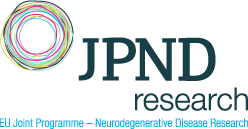
SHAPE was an international research project aiming to improve quality of life and well-being for people with early stage dementia.
What is SHAPE?
SHAPE stands for Self-management and HeAlth Promotion in Early-stage dementia with e-learning for carers.
The aim of SHAPE is to enhance the people with dementia’s belief in their own abilities to adapt and manage living with dementia. SHAPE provides a course with ten weekly group sessions for people with dementia where the participants will learn about dementia, decision-making, social interaction and healthy behaviours. Their care partners get information through an e-learning programme.
The SHAPE intervention is designed to meet the needs of people with dementia to maintain independence and dignity, improve health behaviours, plan the future together with the family and live well with the disease in their own home for as long as possible.
The research project is ended.
For information about the SHAPE intervention, contact project leader Ingelin Testad post@sus.no

eSHAPE – The study
A randomised controlled trial with participants from Norway, UK and Australia.
An EU Joint Programme – Neurodegenerative Disease Research project, JPND
Because of the Covid-19 pandemic, SHAPE was converted into an online digital group course intervention called eSHAPE.
The participants received iPads ready to for use. They joined the group session by accepting an incoming call.
The use of the iPads allowed the participants to come together despite geographical distances.
People with mild to moderate dementia over the age of 65 took part. They had a care partner who was willing to participate. Read the full list of participation criteria
Participating countries in the research study
Three countries took part in the SHAPE research project.
Project timeline
After recruitment of health care providers and training of group facilitators, the project was put on hold in March 2020 due to the pandemic. The intervention was converted into a digital group course intervention called eSHAPE, and group facilitators were trained to use eSHAPE.
Starting points
The start of recruitment of participants to eSHAPE differed in the three countries. The timeline below has the starting point for the first country to start, which was Norway.
Recruitment of health care providers
The health care providers identified people with dementia and their care partners to take part in the intervention.
Recruitment of participants for eSHAPE
Baseline data collection by telephone
Interviews with the participating people with dementia and their care partners
eSHAPE intervention
Group sessions for people with dementia and e-learning for their care partners
Follow-up data collection by telephone
There were two follow-up interviews with the people with dementia and their care partners by telephone.
-The first follow-up interviews were done immediately after the course
-The second follow-up interviews were done 6 months after the first follow-up interviews
Recruitment ended
UK - Recruitment ended April 30th 2023.
Australia - Recruitment ended in May 2023.
Norway - Recruitment ended in July 2023.
Why is SHAPE important?
Latest News
Data analyses started
It is with joy and excitement that we started analysing the data from the eSHAPE study in… Read more
Milestone - data collection completed
The collection of data for the project was finalised in all three countries in summer… Read more
Milestone reached in Australia
The first online group session has been delivered in Australia. The study iPads have been… Read more





